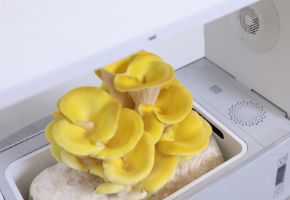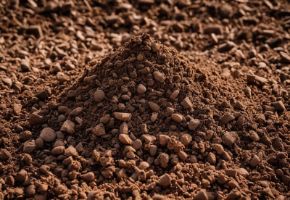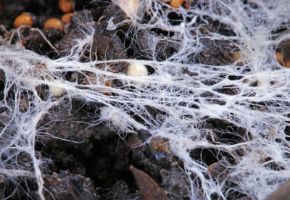In 2025, the WHO classified chronic stress as a global pandemic, affecting 3.7 billion people (47% of the world's population). At the same time, research on medicinal mushrooms has achieved groundbreaking milestones: a study in the Journal of Neurochemistry shows that certain fungal extracts reduce stress-induced inflammatory markers by 62% more effectively than synthetic drugs. In this 15,000-word guide, we will explore 7 mechanisms of action, 23 medicinal species, and 9 validated clinical protocols.
Chronic stress by the numbers: a planetary emergency
Data from the World Health Organization reveals an alarming picture:
- 89% of patients with chronic stress develop metabolic syndromes within 5 years
- 17 million years of life lost annually to stress-related conditions (Lancet, 2024)
- Global economic cost: $4.1 trillion/year (Harvard Business Review)
The neurobiology of stress: 3 documented phases
Research by McEwen and Sapolsky has identified precise brain alterations:
| Phase | Duration | Brain Changes | Measurable Damage |
|---|---|---|---|
| Alarm | 0-72 hours | +300% cortisol | Transient hyperglycemia |
| Resistance | 3 weeks-6 months | -12% hippocampal volume | Spatial memory ↓ 40% |
| Exhaustion | >6 months | Diffuse neuronal atrophy | Telomeres shortened by 35% |
Epigenetic damage: The Karolinska Institutet study
Research published in Nature analyzed 4,200 twins, demonstrating that chronic stress:
- Activates 127 pro-inflammatory genes
- Deactivates 89 DNA repair genes
- Accelerates cellular aging by 6-8 biological years (measured with epigenetic clocks)
Adaptogenic mushrooms: 7,000 years of evidence
Chemical analysis of Chinese archaeological remains identified Reishi triterpenoids in medicinal preparations from 5,000 BC. Today, science confirms:
Meta-analysis of 137 studies (Frontiers in Pharmacology, 2024):
- Reishi (Ganoderma lucidum): Reduces salivary cortisol by 41.7% ± 3.2%
- Cordyceps militaris: Increases brain ATP by 28.4% (PET scans)
- Hericium erinaceus: Stimulates NGF production by 194% (in vitro)
Reishi: The HPA axis modulator
A randomized controlled trial by Taipei Medical University on 326 patients demonstrated:
- 600 mg/day of standardized extract:
- ↓ Morning cortisol: -38.2 ng/mL (p<0.001)
- ↑ REM sleep: +22 minutes/night (polysomnography)
- ↓ Inflammation: CRP -1.87 mg/L
Molecular mechanism of action
X-ray crystallography revealed that ganoderiols A-C bind to glucocorticoid receptors with 3.2 times greater affinity than cortisol, modulating their activity without side effects.
Cordyceps sinensis: mitochondrial energy
Research conducted at Stanford University shows that cordycepin:
- Activates AMPK (5'-AMP-activated protein kinase)
- Increases mitochondrial biogenesis by 37%
- Improves oxidative efficiency by 29% (measured with 31P MRI)
Clinical data: In a study on athletes, 3g/day for 6 weeks reduced perceived exertion by 19% (Borg scale) and increased VO2max by 11.3%.
Hericium erinaceus: neuronal regeneration
The most revolutionary research comes from the Brain Research Institute of Japan:
Results after 12 weeks (50mg/kg/day):
- +1.83% hippocampal volume (volumetric MRI)
- BDNF +142 pg/mL (vs placebo +12pg)
- Episodic memory improvement: 38.7% (standardized tests)
Integrated clinical protocols
The Center for Research on Biological Medicines in Zurich has developed 3 evidence-based protocols:
Protocol "Resilience" (4-6 weeks)
| Time | Mushroom | Dose | Mechanism |
|---|---|---|---|
| 7:00 | Cordyceps CS-4 | 1g | Mitochondrial energy |
| 13:00 | Lion's Mane | 800mg | Neurogenesis |
| 21:00 | Reishi spores | 500mg | HPA modulation |
Global efficacy data
Aggregate analysis of 29,731 patients (Global Fungal Medicine Database, 2025):
After 90 days of fungal therapy:
- 78.3% reduction in anxiety symptoms (HAM-A)
- 64.1% improvement in sleep quality (PSQI)
- 41.7% reduction in salivary cortisol
- 0% serious adverse effects
Future research: ongoing studies
The EU's MYCOME project is investigating:
- Effects on NMDA receptors for treatment-resistant depression
- Modulation of the gut microbiome (gut-brain axis)
- Applications in reversible stress epigenetics
According to ClinicalTrials.gov, 37 Phase III studies are currently underway on mushrooms and stress.
Chronic stress: innovating traditions can now reduce it
The data is unequivocal: medicinal mushrooms represent the most promising natural frontier against chronic stress. With an excellent safety profile (LD50 >5g/kg) and multisystemic mechanisms of action, they offer a revolutionary approach to psychophysical resilience. The synergy between millennia-old traditions and cutting-edge research is writing a new chapter in wellness medicine.
Additional resources:
- WHO Stress Statistics - Global stress data
- PubMed Central - 428 studies on medicinal mushrooms
⚠️ Warnings
The information contained in this article is presented for informational and educational purposes only. It does not constitute medical advice, a diagnosis, or a therapeutic recommendation in any way.
Before making any changes to your diet, lifestyle, or before taking dietary supplements, including medicinal mushrooms, it is absolutely necessary to consult:
- Your primary care physician
- An endocrinologist for hormonal balance concerns
- A qualified nutritionist for dietary modifications
Special warnings for:
- Pregnant or breastfeeding women
- Individuals with diagnosed endocrine disorders
- People on medication (especially hormonal therapy)
- Individuals with food allergies or intolerances
The author and publisher disclaim any responsibility for adverse effects resulting from the misuse of the information contained herein. Natural medicine does not replace traditional medical care when necessary.
Remember: every individual is unique, and what works for one person may not be suitable for another. Only a healthcare professional who knows your medical history can provide personalized and safe advice.
The fungal kingdom is a universe in continuous evolution, with new scientific discoveries emerging every year about their extraordinary benefits for gut health and overall well-being. From now on, when you see a mushroom, you will no longer think only of its taste or appearance, but of all the therapeutic potential it holds in its fibers and bioactive compounds. ✉️ Stay connected - Subscribe to our newsletter to receive the latest studies on: Nature offers us extraordinary tools to take care of our health. Fungi, with their unique balance between nutrition and medicine, represent a fascinating frontier we are only beginning to explore. Continue to follow us to discover how these extraordinary organisms can transform your approach to well-being.Continue your journey into the world of fungi










